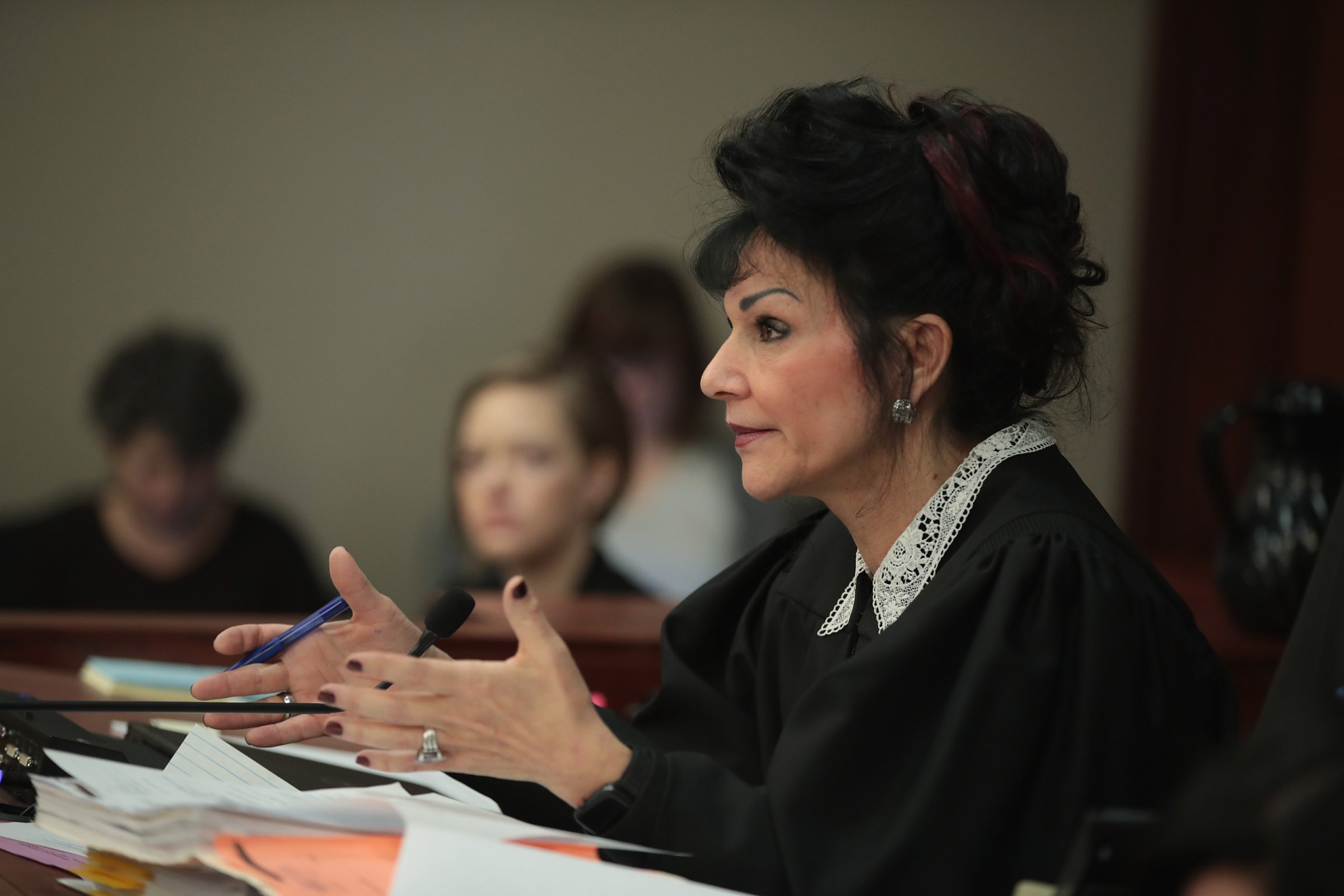
There’s something about women exercising power — the act of women demanding equal treatment, pay and respect — that makes certain people’s skin crawl. As the #MeToo movement has grown in scope and influence, a predictable backlash has resulted. Critics have begun to attack the campaign as a feminist vehicle run amok, an overcorrection to a problem that’s admittedly bad, but one that’s not as terrible or widespread as women’s rights advocates claim it to be.
This week, that backlash spilled over into the courtroom with critics claiming that Michigan Judge Rosemarie Aquilina went way too far in condemning and sentencing former USA Gymnastics and Michigan State University physician Larry Nassar. She sentenced him to up to 175 years on top of the 60 he’s already serving on child pornography charges, saying, “I just signed your death warrant.”
Nassar stood accused of using his position as a doctor to molest more than 150 girls and women under the guise of treating their injuries. But Nassar, who initially denied any wrongdoing, could see the writing on the wall. Fearing powerful testimony from his accusers, Nassar pled guilty to seven counts of first-degree criminal sexual misconduct, a move that could have prevented the public from hearing in detail the heart-wrenching accounts of his victims. But the women and Judge Aquilina were not ceding that kind of control to Nassar. He was not going to silence his victims any longer — their voices would not go unheard. Even though they would not be given an opportunity to present testimony as witnesses in Nassar’s criminal trial, Judge Aquilina allowed 156 women to step up to the podium and tell their stories via impact statements. The stories of these courageous women, some of whom are household names because of their Olympic triumphs, have been heard by millions of people around the world.
Judge Aquilina’s scathing admonishments of Nassar have made front page news across the country and have made her into something of a media sensation. But not everyone sees the judge as a hero. Some legal analysts have roundly criticized Aquilina for her tough courtroom words, believing she crossed a line. These same critics say the judge of created a circus atmosphere in the courtroom, turning judicial proceedings into therapy sessions.
I say nonsense. Her critics got it all wrong. Judges have a great deal of latitude and discretion in conducting sentencing hearings, and victim impact statements are permitted at some point of the sentencing process in all 50 states. These statements allow crime victims to provide the court with information regarding the harm they’ve experienced — information that the judge may not otherwise receive and can use in determining the sentence. It’s not “therapy” — it’s justice.
By allowing the victims to tell their stories of abuse at the hands of an admitted sexual predator, Judge Aquilina was honoring, not bucking, a time-honored tradition of the criminal justice system. The fact that there were north of 150 victims who spoke rather than one doesn’t negate the legitimacy of how the judge conducted the hearing. And yes, she used strong language when delivering the sentence. That is her prerogative; judges have a wide range of discretion. Some may argue that it was a comment unbecoming of a judicial officer, while others — myself among them — attest that it was perfectly acceptable and appropriate given the heinous nature of his acts and that it was not meant to be taken literally. It was a colloquialism used in courtrooms all the time as judges summarize facts used in sentencing. After all, judges don’t have to submarine every aspect of their personalities when they put on black robes and she was not sentencing Nassar to a literal death, just noting that the duration of his sentence equates to an eventual death in prison.
In allowing Nassar’s victims to speak, Judge Aquilina had powerful history on her side: In 2016, courageous “Emily Doe” stood in a Santa Clara County courtroom and addressed Brock Turner, a man who sexually assaulted her as she lay unconscious outside a fraternity party on Stanford’s campus, reading a victim’s impact statement that reverberated around the world. After the judge in that case handed down a sentence of a mere six months, he faced a campaign to recall him. Emily was named woman of the year by Glamour Magazine in 2016. Her powerful statement was a catalyst for a national reckoning that included changes in California’s definition of rape and reinvigorated conversations about sexual assault and harassment. The Nassar hearing has already done the same — the U.S. senators have called for an investigation of the institutions entrusted with the care of the athletes and students who were exposed to him.
There is nothing circus-like about victims’ impassioned pleas for justice, whether it’s one courageous woman like Emily or the 156 who sent a powerful message in Judge Aquilina’s courtroom. The sentiment is the same: the abuse of women by men will no longer be tolerated. This judge, just like these survivors, should be applauded.
More Must-Reads From TIME
- The 100 Most Influential People of 2024
- Coco Gauff Is Playing for Herself Now
- Scenes From Pro-Palestinian Encampments Across U.S. Universities
- 6 Compliments That Land Every Time
- If You're Dating Right Now , You're Brave: Column
- The AI That Could Heal a Divided Internet
- Fallout Is a Brilliant Model for the Future of Video Game Adaptations
- Want Weekly Recs on What to Watch, Read, and More? Sign Up for Worth Your Time
Contact us at letters@time.com